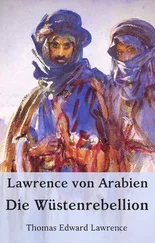78 Ibid., p. 230. See also Sherman, Mandate Days , p. 130.
79 MacNiven, Lawrence Durrell , p. 333.
80 Herzl, Jewish State , p. 8.
81 The Liberal politician Edwin Montagu, in 1915, quoted in Schneer, Balfour Declaration , p. 146.
82 Oz, Israel, Palestine and Peace , p. 53.
83 Claude, A Chair for the Prophet (London: Faber & Faber, 1959), p. 9.
84 Antonius, Arab Awakening , p. 387.
85 Cf. Fisk, Great War , p. 463.
86 Antonius, Arab Awakening , p. 409.
87 Oz, Israel, Palestine and Peace , pp. 46–47.
88 Quoted in Segev, One Palestine, Complete , p. 307.
89 Quoted in Fisk, Great War , p. 444.
90 Quoted in Segev, One Palestine, Complete , p. 442.
91 Fisk, Great War , p. 460.
The Editor wishes to thank the following for their assistance in the preparation of this publication:
Dr. James Bantin, Curator, Special Collections, Morris Library, Southern Illinois University, Carbondale;
Anthea Morton Saner, formerly Lawrence Durrell’s agent at Curtis Brown;
Anna Davis, currently agent for the Lawrence Durrell Estate at Curtis Brown;
Brewster Chamberlin, author of A Chronology of the Life and Times of Lawrence Durrell ;
Ian MacNiven, author of Lawrence Durrell: A Biography and editor of The Durrell — Miller Letters 1935–1980 ;
Dr. Yaacov Lozowick, Director of the Israeli State Archives;
Dr. Hagai Tsoref, Israeli State Archives;
Yehudit Massad and Joan Halfi, archivists, Kibbutz Shamir, Israel;
Jenny Romero, Special Collections Department Co-ordinator, Margaret Herrick Library, Academy of Motion Picture Arts and Sciences, Los Angeles;
Patrick Sammon, a colleague in the Durrell School of Corfu, who gave considerable assistance and advice during proofreading;
and in particular my colleague Dr. Anthony Hirst, Academic Director of the Durrell School of Corfu, for professional support, also for assistance in compiling the Glossary, and for preparing the text for printing.
Abbreviations
ADC Aide-de-camp : usually an assistant or adviser to a senior officer.
ATSAuxiliary Territorial Service: the title of the women volunteers’ branch of the British army, 1938–1949.
BEABritish European Airways: precursor (with British Overseas Airways Corporation) of British Airways.
C-in-CCommander-in-Chief.
D.P.Displaced Persons.
G.S.O.2General Staff Officer, 2nd Grade.
H.E.His Excellency: title usually applied to an Ambassador.
H.M.G.His Majesty’s Government: at the time in which Judith is set, the British monarch was George VI (reigned 1936–1952).
MIMilitary Intelligence.
MTMilitary Transport.
N.C.O.Non-Commissioned Officer.
O.C.Officer Commanding / Officer in Command.
UNOUnited Nations Organization.
WTWireless transmitter.
Technical terms, proper names, foreign and obscure words
ack emma:from an obsolete military ‘phonetic alphabet’, these are the words representing the letters A and M. Thus ‘four ack emma’ means ‘4 a.m.’
acroflavin:acriflavine hydrochloride: a topical antiseptic.
Camberley:a town about 30 miles southwest of the centre of London, home to a Staff College for training British army officers.
Carley floats:life rafts based on compartmented ovals of copper or steel tubing.
cutty pipe:a pipe whose shape is based on that of traditional clay pipes, but without the long stem.
Druze:the Druze are an Arab people whose religion stems from Islam but has distinct esoteric features; the Druze live mainly in Syria, Lebanon and Israel.
duffle:a duffle coat, made from a coarse woollen fabric, widely used in the British navy from the First World War; typically fastened with two or more wooden or horn toggles through loops of rope or leather.
francs-tireurs: literally “free shooters”; a term often used for irregular forces or partisans, but here appearing to mean simply ‘marksmen’ or perhaps ‘snipers’.
Gauss:Carl Friedrich Gauss (1777–1855), brilliant German mathematician and physicist, whose conjectures are still being followed up today.
German colony:a compound to the southwest of the Old City of Jerusalem, established in the late nineteenth century by a German Messianic Christian sect.
Hafiz:fourteenth-century Persian lyric poet.
Immediate (as in ‘an Immediate’):an instruction for immediate action.
I-tanks:infantry tanks designed to accompany (and sometimes to carry on the outside) foot soldiers into battle.
Jewish Brigade:Jewish Infantry Brigade Group. A unit within the British army, formed in 1944, which fought against the Germans in Italy. After the Second World War many members became involved in illegal Jewish immigration into Palestine.
Judas (as in ‘a Judas’):a small hinged or sliding panel in a door which allows observation of the person on the other side.
Juliet:a high quality cigar. The full brand name is ‘Romeo y Julieta’, used by two different companies, one in Cuba and one in the Dominican Republic.
Kalmuk:the Kalmuk people, who live on the western shore of the Caspian Sea, are of Mongol origin.
Lager:German for ‘camp’.
Mactaggart forts:military fortresses built throughout Palestine from 1938 (including one in the Hebron) on a model designed by Sir Charles Tegart; Tegart’s name is commonly misspelled ‘Taggart’. Durrell may have deliberately added ‘Mac’, or it may be a slip of his memory.
Miko:evidently, from the context, a top-secret intelligence report. It has not been possible to verify the term. Durrell may have invented it, or misremembered some term he had once been familiar with. It could, perhaps, be an acronym for ‘Military Intelligence Covert Operations’, with the C changed to K.
Mills bombs:a range of hand grenades named after its inventor, Sir William Mills, and first produced in 1915. A new type, the Mills 36M, was produced during the Second World War.
Oxford Shorter: Shorter Oxford English Dictionary , first published in 1933, in two large volumes.
sabra:a Hebrew word for a Jew born in Palestine. It first came into use in the 1930s. It refers to the fruit of the prickly pear; equivalent to ‘a rough diamond’.
specie:money in the form of coins.
Tellers:Teller mines: German-made anti-tank mines.
Tobruk:as part of the North African campaign, Tobruk was the site of a battle and a siege in 1941.
Verey lights:flares fired from a pistol, to illuminate the sky, named after their American inventor, Edward Wilson Very.
The old “Zion” was something of a miracle-ship to the loafers upon the quays and wharves of Haifa; they said that she had no right to be afloat at all. They might perhaps have said the same of old Isaac Jordan, her skipper. As for real sailors who saw the old hulk bustling across the oily harbour water towards the outer sea, they respectfully removed their pipes and spat, gazing after her with a kind of awed sympathy bordering on horror. The Naval Station Commander, catching sight of her from the broad glass windows of the signal station, was apt to utter a pleasantry to his Number Two: “There she goes, with all the grace of a flat-iron!” Yet he noted with a professional eye that her speed was respectable considering her age; only her stability was somewhat questionable. She was about as stable in a head sea, he told himself, as a soap dish. Isaac was a madman to take her to sea. And yet, he had been doing it for years now.
Читать дальше












